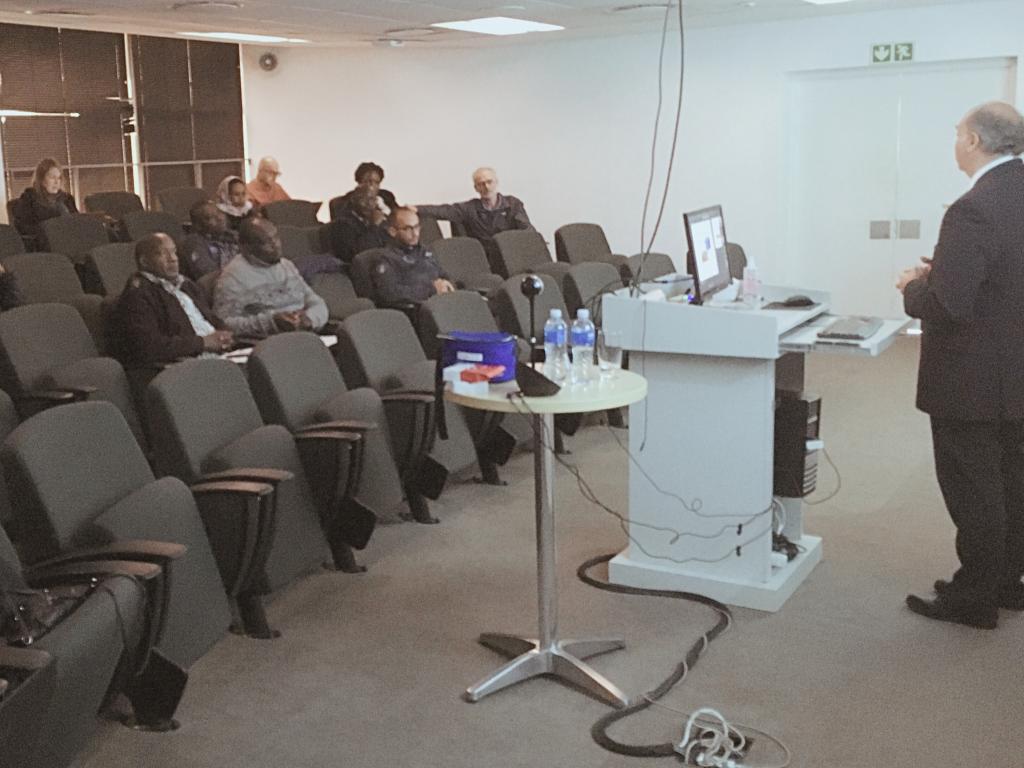Data scholarship capacity building

Prof. Dave Gordon presenting to course participants in the UCT School of Economics seminar room.
The last week of August was a buzz of activity as researchers from the ACEIR country teams and other academic partners gathered for a series of advanced methods capacity building workshops. Most of the events were in person and it was invigorating to be together under the same roof again after two years of virtual meetings due to the COVID-19 pandemic.
Participants and facilitators came from France, Ghana, Kenya, Mozambique, South Africa, and the United Kingdom.
The training built on last year’s Advanced Poverty Research Methods Course that was facilitated by Prof. David Gordon from the Bristol Poverty Institute, University of Bristol. This year, the first three days had a strong focus on spatial mapping and modelling using the R statistics language, a free open-source environment for statistical computing and graphics.
On the first day, Dr Takwanisa Machemedze (ACEIR’s data officer and a researcher at DataFirst, University of Cape Town) primed participants in the use of R. That was followed by Prof. Richard Harris (School of Geographical Sciences, University of Bristol) who ran a two-day workshop to introduce mapping and spatial modelling in R to participants. This was a course in geographic data science with a particular focus on mapping, measuring, and quantifying spatial patterns in data. Spatial inequality is one of ACEIR’s research themes as teams from the different research nodes are mapping spatial poverty and inequality to generate a better understanding of the dynamics of this form of inequality.
On day three, participants were treated to a hybrid advanced training workshop on Universal Poverty Measurement, facilitated by Prof. Gordon. It covered briefly both the theory and the practice of creating a universal poverty measure – i.e., how to construct a valid and reliable measure poverty, or low-living standards, for any society at any point in history using social survey microdata. The workshop drew on Townsend's theory of poverty as relative deprivation as scientific in that it can, at least theoretically, be used to measure poverty in all societies at all points in history. The day’s proceedings covered the measurement theory, analytical framework and the practical steps involved in constructing a suitable, valid, reliable, and additive poverty indicator.
It was a fascinating and insightful knowledge exchange with Prof. Gordon, who is the director of both the Townsend Centre for International Poverty Research and the Bristol Poverty Institute. Having recently been elected a fellow of the British Academy in recognition of his achievements in issues of poverty and social justice, the ACEIR team was privileged to learn from him. Prof. Gordon – and the Bristol Poverty Institute – have been strategic partners since ACEIR’s establishment and we look forward to further collaborations.
Following these workshops was another training and capacity building workshop for a smaller team from Mali who are collaborating on that country's inequality diagnostics.
